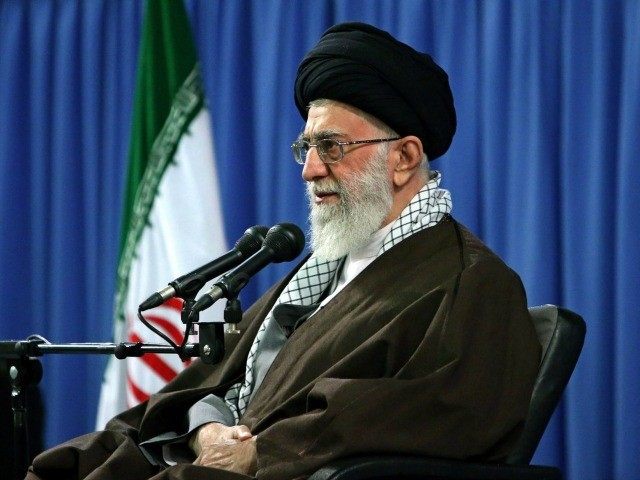This morning’s key headlines from GenerationalDynamics.com
- Saudi Arabia, with US help, leads Arab nations to strike Houthis in Yemen
- Iran threatens retaliation against Saudi Arabia for Yemen strikes
- Shia militias sidelined for Iraq’s assault on Tikrit, with US help
Saudi Arabia, with US help, leads Arab nations to strike Houthis in Yemen

Iran is threatening to close the Bab el Mandeb and Hormuz straits, isolating Saudi Arabia
Saudi Arabia deployed 100 fighter jets, 150,000 soldiers and other navy units on Thursday, launching its “sweeping military operation” into Yemen.
Several Gulf Arab states — Saudi Arabia, United Arab Emirates (UAE), Bahrain, Qatar and Kuwait (but not Oman)– issued a joint statement on Thursday that they decided to repel Houthi militias, Al-Qaeda in the Arabian Peninsula (AQAP) and the Islamic State (IS or ISIS or ISIL or Daesh) from Yemen. Egypt, Pakistan, Jordan and Sudan also expressed their support, and readiness to participate.
The United States military is supporting the operation with air support, satellite imagery, and other intelligence, but is not taking part in the strikes. Al Arabiya and NBC News
Iran threatens retaliation against Saudi Arabia for Yemen strikes
Iran’s foreign minister Mohammad Javad Zarif demanded an immediate end to the Saudi air strikes against Houthi targets in Yemen. According to Zarif:
We are calling for an immediate end to Saudi Arabia’s military operations in Yemen… We know that these actions violate the sovereignty of Yemen. This operation will result in nothing other than bloodshed, and we will provide all our efforts to defuse the crisis in Yemen… This operation will involve the region in much more tension.
Actually Zarif has it backwards when he says that the Saudi airstrikes violate the sovereignty of Yemen. The airstrikes were requested by Abdu Rabu Mansour Hadi, who is the internationally recognized president of Yemen, while the Houthis are the terrorists. So the Saudi intervention is perfectly legal, while any actions that Iran takes to support the Houthis would be supporting terrorism.
Hadi himself was in Riyadh, Saudi Arabia, on Thursday, and is traveling to Cairo for an Arab League meeting.
Articles published on state-sponsored Iranian media are inciting the Houthis to further violence, telling them to counterattack Saudi Arabia on Saudi soil, and suggest joint operation with Iran to close two choke points in order to isolate Saudi Arabia. According to one article:
The Attack on the Yemeni Revolution: The Arena Of Retaliation Stretches From Bab Al-Mandeb To The Strait Of Hormuz: Despite the fact that Saudi Arabia gathered several countries … to ensure that the implications of its attack on the popular revolution in Yemen would be directed at a coalition of Arab countries, the consequences of this move will undoubtedly be directed at its own interests. The Saudi-Western front wants to restrict Ansar Allah to North Yemen and distance the Houthis from [the Strait of] Bab Al-Mandeb. [Therefore,] it is possible that they would go as far as splitting Yemen or occupying parts of the south to realize this goal… Now the Houthis also have the necessary pretext to launch military operations and retaliatory strikes deep inside Saudi territory, in Bab Al-Mandeb, the Red Sea, and even the Strait of Hormuz. The foremost high priority targets for them are the oil fields, tankers, and industry.
As shown in the map above, if Iran and the Houthis could close the Strait of Hormuz and the Bab el Mandeb strait, then Saudi oil would be trapped in the Persian Gulf and Red Sea.
Anticipating this move, the Egyptians on Thursday morning sent its naval and marine forces to take control of Bab el Mandeb. AEI Iran Tracker and Memri and Anadolu (Turkey) and Debka (Israel)
Shia militias sidelined for Iraq’s assault on Tikrit, with US help
With the US now conducting airstrikes against Islamic State (IS or ISIS or ISIL or Daesh) targets in Tikrit in Iraq, apparently some 20,000 troops from Iran-trained Shia militias will not be participating in the assault after all, leaving some 4,000 Iraqi regular army military troops as the only force on the ground.
There are two different sets of reasons being put out to explain why the Shia militias will no longer participate. According to the Americans, the US asked Iraq to withdraw the Shia militias so that the US wouldn’t be making airstrikes in support of Shia militias. The Shias are saying that they pulled out of the Tikrit operation in protest against the American airstrikes.
Either way, the 20,000 Iran-trained Shia militias are gone, and so is Iran’s legendary Gen. Qassem Soleimani, who was supposed to have defeated ISIS in Tikrit weeks ago, within a few days. Now we will get to see whether 4,000 Iraqi army troops, backed up by American airstrikes, can do what Soleimani and his Shia militias could not. AP
KEYS: Generational Dynamics, Iran, Iraq, Tikrit, Egypt, Pakistan, Al Qods Brigades, Qassam Soleimani, Abdulwahab al-Saadi, Yemen, Houthis, Abdu Rabu Mansour Hadi, Sanaa, Javad Zarif, Aden, Saudi Arabia, Gulf Cooperation Council, GCC, Al-Qaeda in the Arabian Peninsula, AQAP, Jordan, Sudan, Islamic State / of Iraq and Syria/Sham/the Levant, IS, ISIS, ISIL, Daesh
Permanent web link to this article
Receive daily World View columns by e-mail

COMMENTS
Please let us know if you're having issues with commenting.